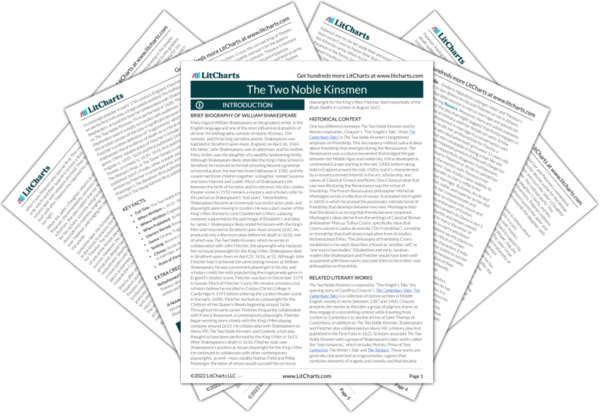Palamon would rather risk being discovered by Theseus—which would most certainly have grave consequences for him, since he’s an escaped prisoner of war—than appear cowardly in front of Arcite. Once more, Palamon demonstrates that he would rather die than wound his pride. Arcite and Palamon argue back and forth, both wanting to appear braver and more chivalrous than the other. Arcite attempts to dissuade Palamon from fighting. He reasons that if they fight now and Theseus discovers them, they risk both of them being put to death by the state rather than by each other, which prevents them from suffering the noble, honorable deaths they desire. But, as per usual, Palamon fails to subdue his passion, and the cousins commence their unsanctioned duel.
